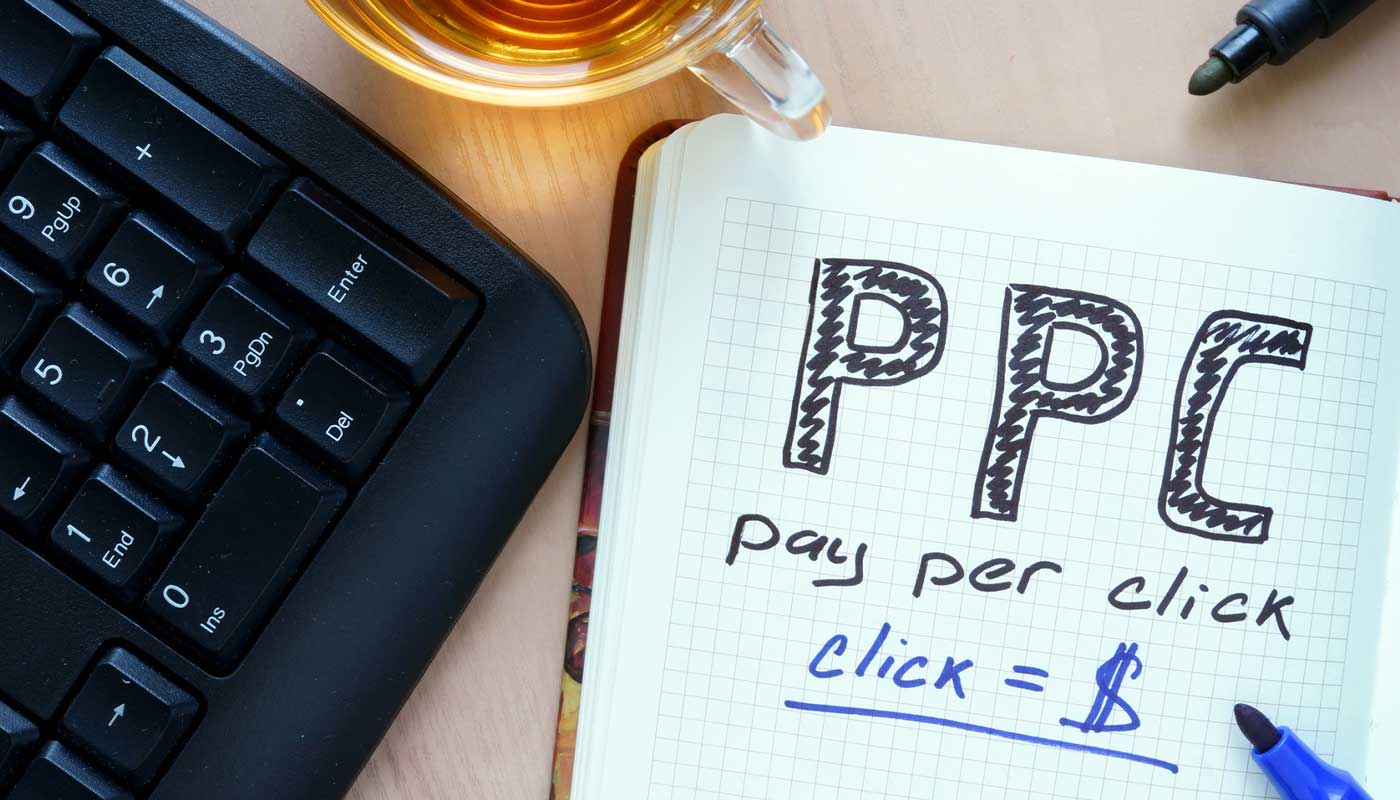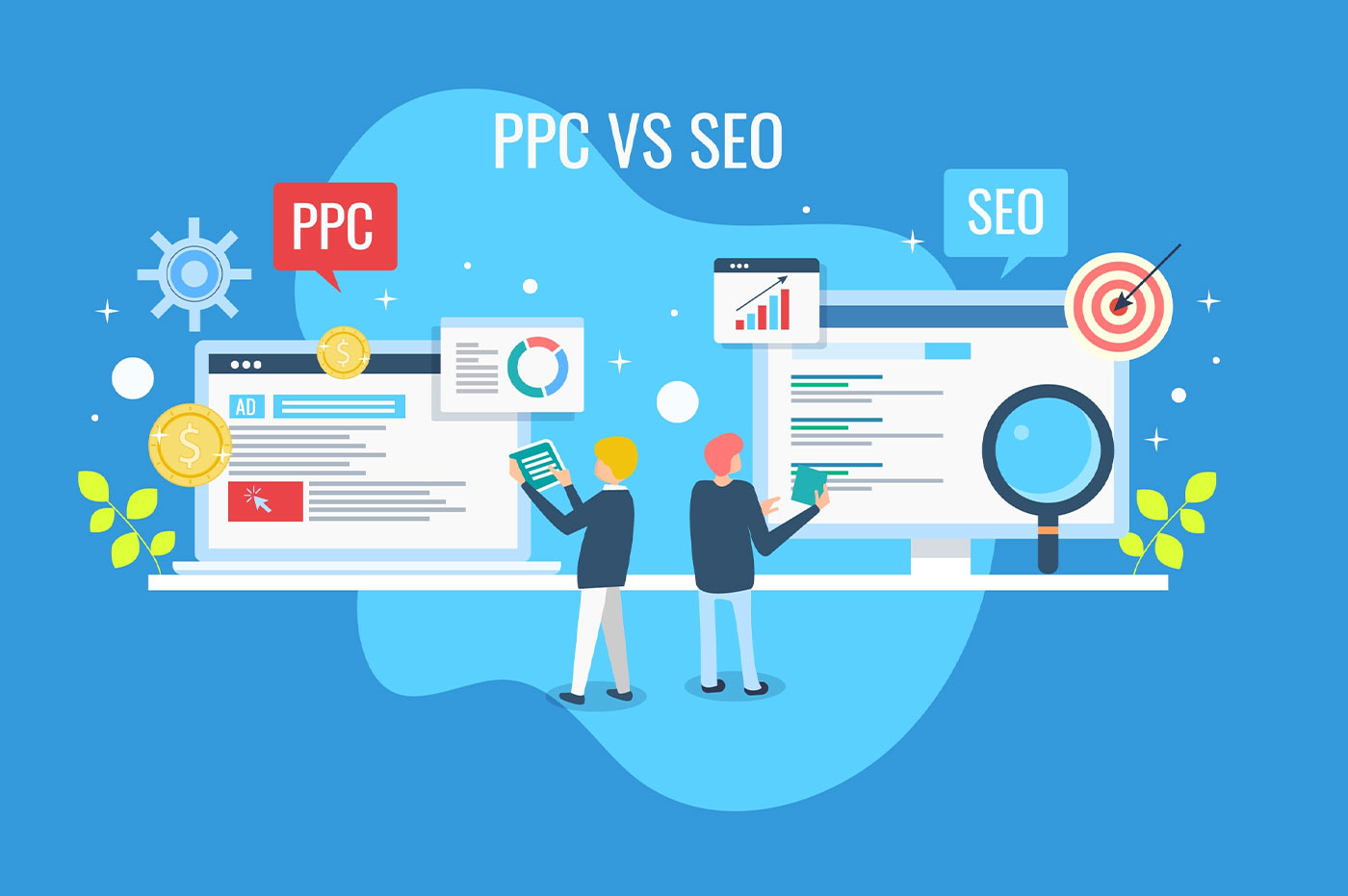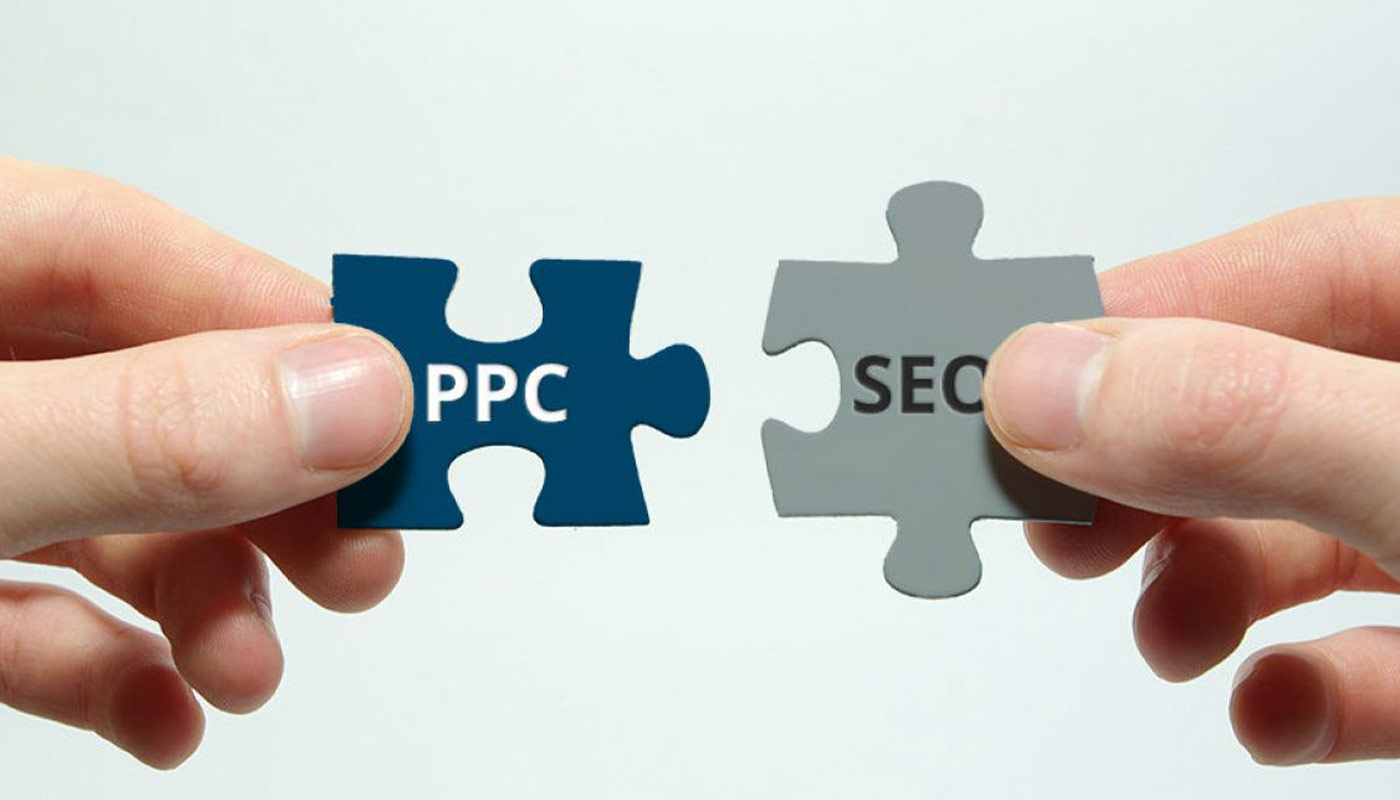Determining the Optimal Strategy: Choosing Between PPC Ads and Organic SEO Payments

t's like the age-old saying, "Does a tree fall in the forest and no one hears it?" Does it make a sound? Similarly, does your business exist if you have a fantastic product or service but no one knows about it? The answer to both queries is emphatically NO.
Table of Contents
ToggleIt is critical to increase your search engine results page (SERP) exposure now, where everyone can see it.
You have two options: invest in pay-per-click (PPC) campaigns or in organic search engine optimization (SEO).
Let’s review which traffic generation strategy makes the most sense for you.
What's SEO?
The technique of enhancing your SERP presence is known as SEO. Simply said, SEO is the process of making your website as search engine friendly as possible. As Steve Hoenig stated
"It's a long-term investment, and as many say, SEO is a marathon rather than a sprint,"
This sort of digital marketing is concerned with enhancing your website’s organic search engine results, with the goal of “generating traffic, leads, and sales almost on autopilot.”

People use the internet to look for a variety of things, including:
- Products
- Services
- Information
Organic SEO tactics assist to guarantee that people can find your company when they search for it. As Hoenig stated, this is a protracted game that will require patience to see benefits.
How SEO Campaigns Work
Whether you employ a search engine optimization professional or do it yourself, optimizing for organic search engine rankings usually entails the following activities:
- Research and plan for keywords: Determine the terms and phrases that consumers will use to search for your product or service.
- Create links: Developing relationships with other websites and blogs in order to obtain backlinks that lead to your site.
- SEO on-page: Optimizing the content and structure of your website to assist search engines better comprehend what you provide.
- SEO on a technical level: Check that your site’s hosting and architecture are up to date so that search engines can scan and rank your pages.
If you own a local business, you can also invest in local SEO marketing to help people find you in your region.
What Is Pay Per Click (PPC)?
In contrast to SEO, PPC employs paid traffic generating strategies such as search engine marketing and display advertising. That is, you will pay for your clicks or impressions rather than obtaining them naturally.
For example, you may bid on certain keywords related to your company. Your ad displays in the SERP when people search for them. You will be charged the agreed-upon cost whenever they click on your ad.
If you’re bidding on Google, your PPC ads will include the following elements:
- Headline: A brief, compelling sentence.
- Description: A few lines of text describing what you’re selling
- Display URL: The web address to which your ad will link.
- CTA: A cue that encourages readers to click on the ad, such as “Learn More” or “Shop Now.”

Cuyler Franzke, a media director and search engine marketing expert, has the following to say about PPC:
Advertisers should consider using PPC at all stages of their strategy, regardless of where their business is in its life cycle. PPC ads may be built based on a consumer's degree of awareness and where they are in their customer journey.
What Is a PPC Strategy?
When it comes to managing PPC campaigns, a PPC strategy, like SEO strategies, has numerous moving pieces. Here are some of the typical PPC services provided by a search engine marketing company:
- Research and plan for keywords. PPC campaigns, like SEO, need you to find the correct keywords to target.
- A/B split testing for advertisements. Running two copies of an advertisement to see which one works best.
- Conversion of landing pages. Creating a high-converting landing page for those who click your ad.
- PPC administration. Monitoring the performance of your campaigns and making modifications as needed.
PPC works best towards the bottom of the funnel and typically is the final driver for conversions
Franzke
In a general sense, if a business wants to drive leads or ecommerce, PPC Ads needs to be a part of the strategy
An Amazon audio firm used PPC Ads services from a search engine marketing agency to increase sales and lower advertising expenditures. Despite having 2,000 goods featured, the firm only achieved 14,000 monthly unit sales prior to outsourcing its PPC ads.
They undertook keyword research, product listing optimization, and promotional ad setup, among other things, to enhance sales and streamline their advertising. These initiatives resulted in positive outcomes for the audio company. Furthermore, this audio firm gained 19.18% more email subscribers and an 18.59% better add-to-cart conversion rate.
SEO vs. PPC Ads : The Advantages and Disadvantages?
Let’s now pit SEO and PPC Ads techniques against one another. To make an informed selection between SEO and PPC, we must consider both techniques’ potential and drawbacks

Benefits of SEO
1. Value for Money
While not inexpensive, SEO campaigns are still less expensive than PPC ads. You don’t have to keep paying for each click; it can provide long-term effects.
SEO has the goal of building up a website as an asset, and the work put into it accumulates over time, increasing the value of that asset
Hoenig
That means you’ll receive more bang for your buck in the long run.
If you want to save money, we recommend hiring a search engine optimization professional like Groww to get better results than doing it yourself.
2. Long-Term Effects
Aside from algorithm adjustments, organic search engine rankings often remain stable for lengthy periods of time. As a result, if a page ranks high in SERPs, it will remain there even if no new SEO efforts are undertaken.
While it's best to continue to maintain and work on that asset, at some point, you could walk away from it and have it still generate leads for your business.
Hoenig
For example, if you own a franchise, you may use on-brand franchise SEO initiatives to increase your exposure in local areas. Then, instead of investing in paid search advertising, you can rely on organic search growth as that page continues to rank.
3. More credibility and trust
While SEO and PPC Ads methods provide valuable real estate at the top of SERPs, organic SEO results provide greater credibility and trust. This is because consumers intuitively trust organic results more than advertisements.
Drawbacks of SEO
1. Slow and Uncertain Results
Long-term outcomes need perseverance. It may take weeks or months for your SEO efforts to bear fruit, and you may notice little progress. While sustainability is an important advantage of SEO over PPC, you can’t be certain that your SEO plan will succeed.
2. Requires knowledge and expertise
From dashboards and keywords to crafting thought leadership material, gaining SERP presence organically isn’t easy. If you truly want to increase traffic to your website, you may want the assistance of a search engine optimization expert or search engine marketing business.
3. Unpredictability and competition
As previously said, you can never be certain that your SEO efforts will be fruitful. Because competition on SERPs is severe, even if you do everything correctly, there will always be a possibility that someone else did it better? This isn’t to imply that SEO is a lost struggle; it isn’t. You must be prepared for the potential of not receiving the desired results.
As we said: long-term results need persistence.
Benefits of PPC
1. Greater Visibility Right away
If you want immediate, measurable results, you should use a PPC plan.
As soon as you launch a campaign, you can start showing ads to your end user, post-learning phase
Franzke
There still needs to be time to make adjustments and allow the platform to learn, but in most cases, you can start drawing data and results within the first couple of weeks.
You may quickly enhance your presence on SERPs because you pay for each click. Of course, you’ll need a budget for this, but at least you’ll know what to expect from your campaigns.
2. Control of Targeted Campaigns
There are various choices inside your ad platform (such as Google Ads) for refining your targeting and managing PPC campaigns. This includes the following:
- Geolocation Display your adverts to individuals in certain countries, states, or localities.
- Demographic segmentation Show your ad to a specific demographic based on age, gender, and other characteristics.
- Device selection Select the devices on which you want your ad to appear.
- Campaigns for retargeting Display advertising to individuals who have already interacted with you on the web (i.e., visitors to a certain page).
The more power you have over your marketing, the more likely it is that you will reach your target audience
3. Ease of Performance Tracking
Because of its openness, it is also very simple to track the performance and outcomes of your PPC plan.
Everything you do in PPC has data attached to it, particularly KPI information. From the start, ROI can be directly linked to PPC.
Franzke
You can quickly see how much money you’re paying per click and the ROI of your campaigns right from your ad platform. Working with a search engine marketing specialist also allows you to compare your performance to your goals and find areas for improvement.
Disadvantages of PPC
1. Increased Costs and Ongoing Expenses
Unlike SEO, PPC ads require a steady flow of funds. If you do not keep up with your spending, your ad will no longer display on SERPs.
Also, Specific keywords might have very high bidding prices, thus making them too costly for small businesses.
2. Ad Lifespan is determined by Budget
While PPC ads are helpful for brief bursts of visibility, they won’t survive long without a budget. When your budget runs out, your adverts will be removed from the SERPs until you replenish it. As a result, controlling campaign funds and keeping track of where the money is going is critical.
3. Management Complexity and the Learning Curve
PPC, like SEO, is a maze of keywords, settings, and techniques. If you want to make the most of your money, you must determine whether a keyword is worth bidding on. This entails striking the correct balance between expense and relevancy while still meeting your objectives.
Selecting Between PPC Ads and SEO
The problem is, both SEO and PPC Ads are effective digital marketing techniques that do not have to be mutually incompatible. Investing in frameworks that combine PPC Ads and SEO may significantly increase your exposure and drive more visitors to your website

For example, in content marketing, SEO is typically used to increase organic traffic, whereas PPC ads are used to promote the content and raise brand recognition.
Because of the speed of uptime for PPC, it can pick up any slack or low points during the long process of doing SEO the right way
Franzke
Furthermore, PPC supplements SEO by filling in the gaps with “any tough search terms that SEO efforts may be having a difficult time with, whether due to search volume or competition.”
Even in the scenario that keywords are ranking well in Google, PPC Ads allows a website to occupy even more real estate on the 1st page, increasing brand authority while pushing competitors out of prominent search positions
Hoenig
This goes to show that by combining SEO and PPC, you can effectively increase your brand awareness and grow your business.
Boost Your SERP Visibility with Groww Internet Marketing Agency
You don’t have to pick between hiring a search engine optimization expert and hiring a search engine marketing firm.
Finally, if you want to increase your presence on SERPs, combining PPC Ads with SEO is the best way to proceed.
Groww is an excellent choice for a search engine marketing business that specializes in both organic and paid techniques. We provide completely integrated digital marketing services to help you generate more leads, revenue, and ROI from website visits.
Contact us now to initiate your journey towards improved online visibility!
- Share
